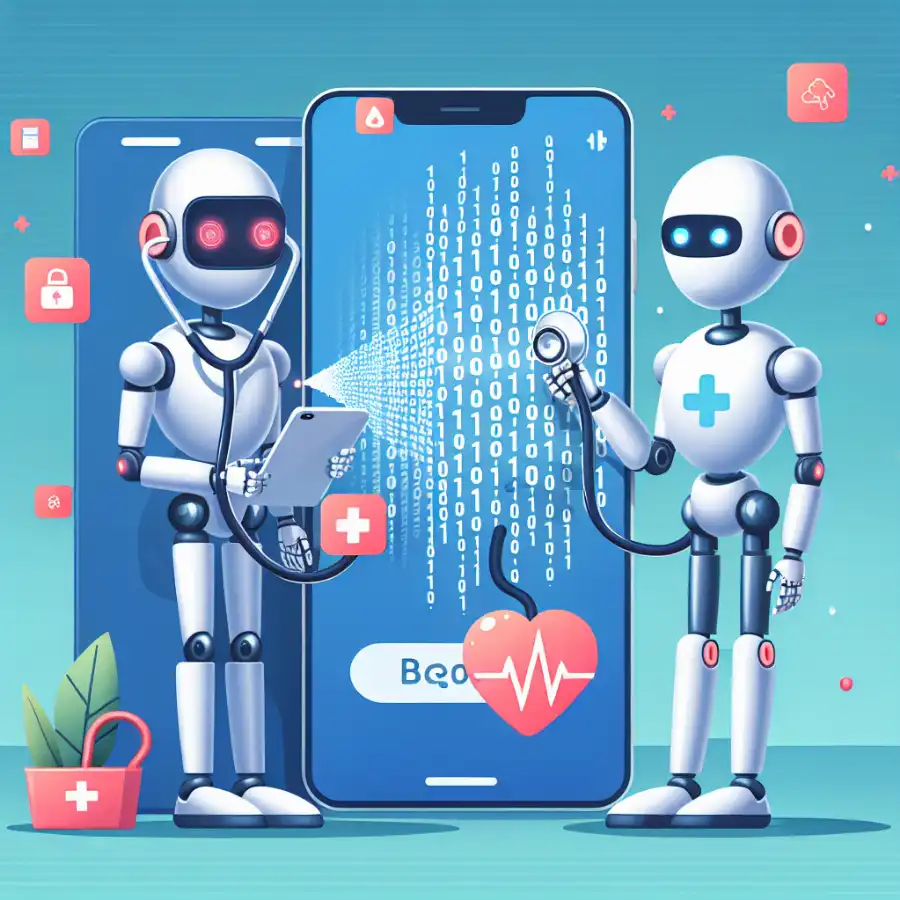Understanding the Importance of Data Privacy in Healthcare
In today’s digital age, the healthcare industry is increasingly reliant on mobile applications to improve patient care and streamline operations. However, with this reliance comes a significant responsibility to protect sensitive patient data. Ensuring data privacy in healthcare mobile apps is not just a regulatory requirement but also a critical factor in maintaining patient trust. This article explores the best practices for safeguarding data privacy in healthcare mobile apps, especially for businesses operating in the USA.
Regulatory Frameworks Governing Data Privacy
Compliance with the Health Insurance Portability and Accountability Act (HIPAA) is paramount for any healthcare mobile application. HIPAA sets the standard for protecting sensitive patient information, and any app that deals with personal health information (PHI) must adhere to these regulations. Understanding the legal landscape is crucial for developers and businesses alike.
Key Data Privacy Challenges in Healthcare Mobile Apps
Healthcare mobile apps face unique challenges related to data privacy. From unauthorized access to data breaches, the risks are numerous. Here are some common challenges:
- Data Breaches: Cyberattacks targeting healthcare data are on the rise, necessitating robust security measures.
- Inadequate Authentication: Weak authentication methods can lead to unauthorized access to sensitive information.
- Data Transmission Vulnerabilities: Insecure data transmission can expose patient information during transfer.
Best Practices for Ensuring Data Privacy
To address these challenges, healthcare mobile app developers must implement various best practices for data privacy:
1. Implement Strong Authentication Mechanisms
Utilize multi-factor authentication (MFA) to enhance security. By requiring users to verify their identity through multiple means, you can significantly reduce the risk of unauthorized access.
2. Encrypt Sensitive Data
Data encryption is essential for protecting patient information. By encrypting data both at rest and in transit, you can ensure that even if data is intercepted, it remains unreadable to unauthorized parties.
3. Regular Security Audits
Conducting regular security audits can help identify vulnerabilities in your application. Hire third-party experts to perform penetration testing and ensure compliance with HIPAA regulations.
4. Limit Data Access
Implement role-based access controls to limit who can access sensitive patient information. Ensure that only authorized personnel have access to specific data based on their roles.
5. Educate Users on Data Privacy
Educating users about the importance of data privacy and security measures can significantly enhance compliance. Provide clear guidelines on how to use the app securely.
The Role of FYKEL in Enhancing Data Privacy
At FYKEL, we specialize in developing healthcare mobile applications that prioritize data privacy. Our team of experts utilizes technologies such as Laravel and React Native to build secure applications tailored to your specific needs. We ensure compliance with all relevant regulations and implement best practices for data protection.
Why Choose FYKEL for Your Healthcare App Development?
Working with FYKEL means you will benefit from:
- Expertise in Regulatory Compliance: Our team is well-versed in HIPAA and other regulations governing healthcare data.
- Robust Security Measures: We implement advanced security protocols to safeguard your app against potential threats.
- Full-Cycle Development: From initial design to ongoing support, we provide a comprehensive range of services to meet your needs.
Conclusion
In the healthcare sector, where trust is paramount, ensuring data privacy in mobile applications is crucial. By following best practices and partnering with experts like FYKEL, healthcare providers can create secure mobile applications that protect patient information and enhance user trust. If you are ready to develop a healthcare mobile app that prioritizes data privacy, contact us today for a consultation.





